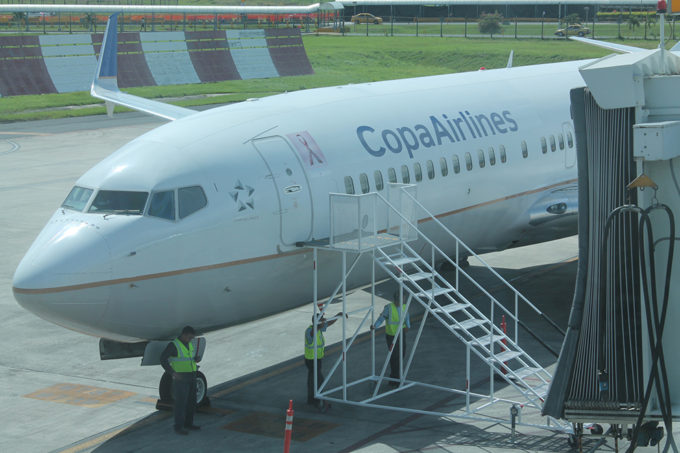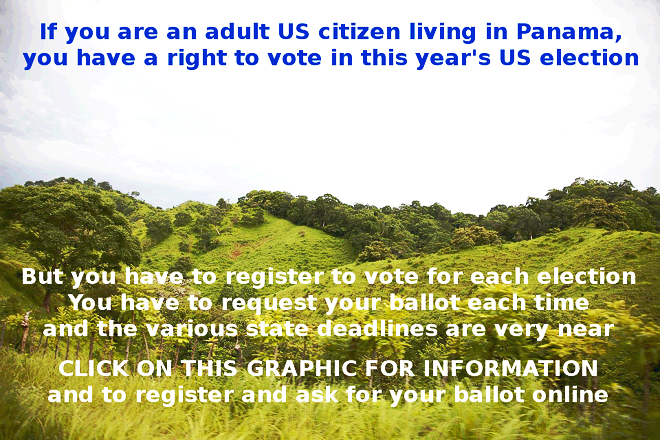
New law gives Panama little power to retaliate against financial sanctions
by Eric Jackson
It’s called La Ley de Retorsión — the twist back law — but it’s premised on Panama having some sort of monopoly over a thing or things that the rest of the world direly needs. A cornered market may be every sharp-edged merchant’s dream, but Panama handles about five percent of world shipping and almost all of that could switch to other routes. The principal air hub of the Americas could easily move from Panama City’s Tocumen Airport to Costa Rica or Colombia or the Dominican Republic.
Is the region’s main wholesaling and warehousing district the Colon Free Zone? Long ago it was Portobelo. When British privateers and other annoyances made it too inconvenient the businesses moved to Cartagena, leaving Panama as a pestilential backwater for the next several centuries. It could happen again.
So now there is a new law that would allow the Panamanian government to retaliate against any other government that discriminates against Panama. Special taxes, fees or surcharges may be imposed on persons from or transactions with countries that discriminate against Panama. Citizens of such countries might find it hard to get visas or impossible to get work permits. The specific measures outlined in the new law are only a suggested beginning and might be ratcheted up in myriad ways without prior warning.
There are test cases lurking out there. Colombia has imposed certain import duties which the World Trade Organization has ruled to be improper protectionist measures, but in Bogota they insist that they are proper counter-measures for the use of Panama’s banking and commercial sectors by Colombian tax evaders. In the wake of the Panama Papers revelations France put this country on a financial services blacklist and is urging other countries and international organizations to join in this effort.
The damage to Panama’s reputation remains severe and ongoing. Public service careers have been ruined in a number of countries and are still threatened in yet more. More European politicians are likely to support sanctions against Panama as their “I am not a crook” postures. Is it safe for Panamanian politicians to take actions that would end up demonstrating how little France needs us, or how much we need the Colombian business investment and large community of Colombians here? The new law is puny stick.
But what about a carrot? On October 27, the day after Panama’s new retaliation law went into effect, Panamanian ambassador to France Pilar de Alemán and the secretary general of the Organization for Economic Cooperation and Development, Ángel Gurría, signed the papers for Panama to adhere to the international organization’s Mutual Assistance Convention. Theoretically this allows the sharing of tax information. But Panama took a reservation, maintaining that it won’t automatically share information with the more than 100 other countries that are parties to the agreement, but only with those with which Panama has bilateral agreements. These the Varela administration intends to limit so that data would be provided only in cases in which tax evasion is formally under investigation as to a particular person or entity. Gurría, for his part, talked about an upcoming report on Panamanian financial practices and suggested that his would have a lot to do with the OECD approach to France’s request for international sanctions.
A big problem for Panama is that the files purloined from the Mossack Fonseca law firm document many cases in which existing laws or international agreements were skirted or flouted. The Panamanian economy may have carried on for more than six months after the first Panama Papers revelations without the sort of crippling sanctions that we saw in Noreiga times, but the scandal has yet to run its course.
Perhaps the greater part of the challenge is that the most effective sanctions are not necessarily by governments. Panamanian banks now find it hard to establish corresponding bank relationships with counterparts in other countries. This slows check clearance and makes international ATM services ever more precarious. There are private companies that won’t do business in or with Panama just because it may not look right to someone.
Panama’s new law will work to the extent that governments and economic elites elsewhere find the convenience of dealing with Panama to be greater than the dangers it poses to their reputations. Think about it. In this US election season, how many American politicians are holding up their Panamanian companies or bank accounts as examples of their business prowess?
~ ~ ~
These announcements are interactive. Click on them for more information.










